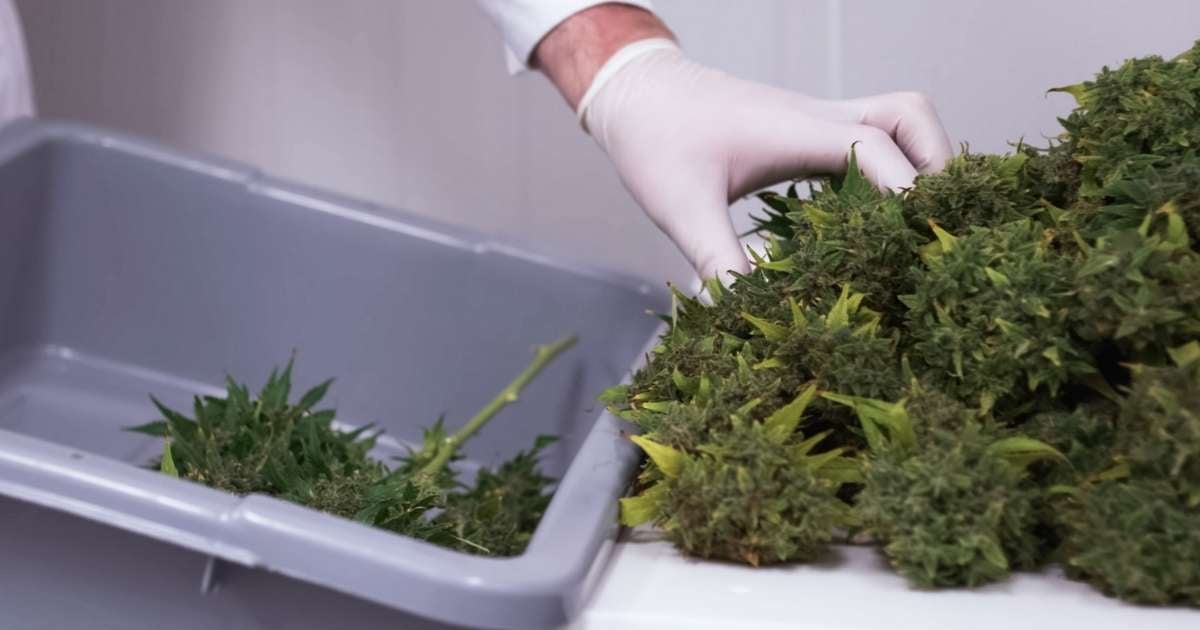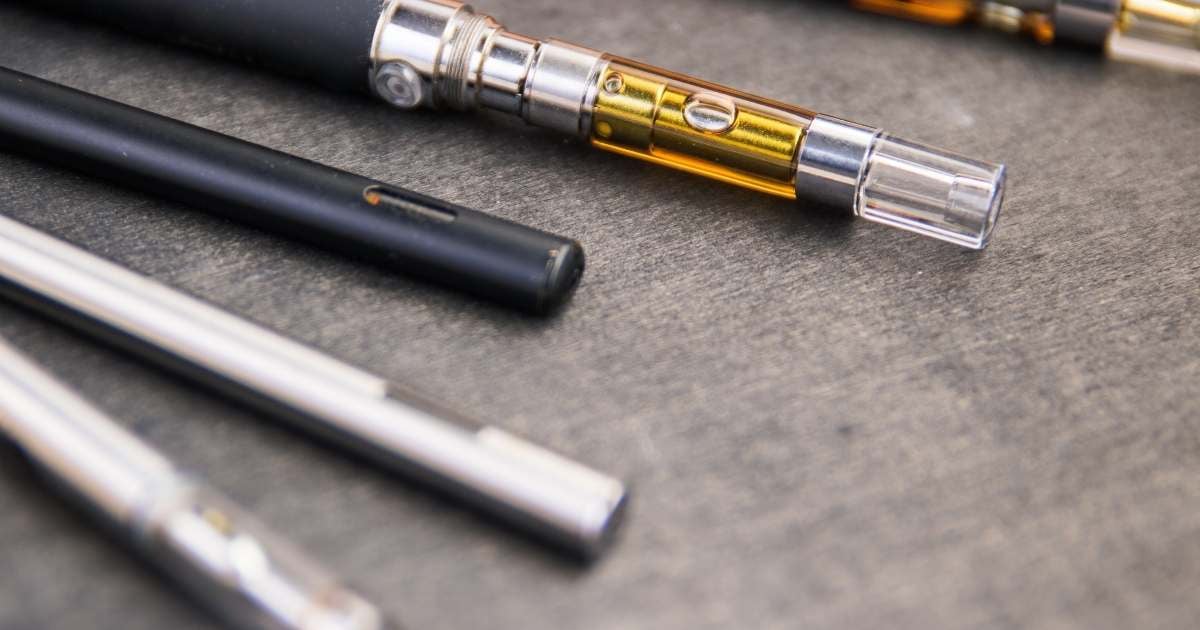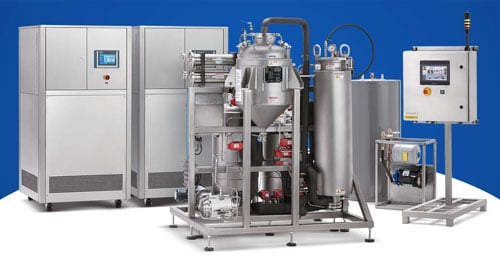Maintaining a competitive edge in the extraction segment means staying ahead of the fast-expanding cannabis industry. As a pure-play cannabis extractor, you’re subject to unique scaling challenges that cultivators and retailers don’t face. Throughout every step of the supply chain, large scale processing companies are met with risky business decisions that could slow down cannabis production and compromise consumer trust.
Navigating these uncharted regulatory and business territories requires innovating on current technologies and offering a variety of products to meet different consumer lifestyles for medical and recreational users. As the popularity of edibles, vapes, and topicals rise, extract manufacturers are seeing big gains and plenty of room to grow. However, identifying key business challenges along the way is key to scale your operations.
Plant Material: Sourcing, Testing, and Supplier Relationships
Every cannabis extract starts off as a seed or clone and hopefully grows into a resinous plant with a complex aroma and taste. Sourcing high-quality bud is the most critical factor in producing premium crude extracts. A major problem in the industry is finding reliable suppliers. In some states, licence caps on large scale growers can create an uneven relationship where there’s not enough supply to work with or there’s too much.
Vertically-integrated companies have the advantage of controlling every aspect of the supply chain for maximum consistency. Vertical integration produces a high-quality and affordable product that can take away your ability to gain a larger share of the cannabis market. As an extraction business, you can provide a unique skill that can’t be replicated simply due to your expertise and focus. However, you will need to spend extra time sourcing and testing the right material from third-party suppliers.

Sourcing
Extraction businesses may forgo their due diligence or not perform enough due diligence when finding a partner. Visiting the cultivation facility allows you to see in-person how the plants are grown and harvested. Do the cultivation practices reflect your standards? Working alongside cultivators also allows you to offer suggestions on storage methods, for example, to achieve your desired product.
Testing
Another common scaling challenge is the lack of testing being performed throughout the plant’s life cycle. Testing in-house every day not only ensures the product is free from pesticides, chemicals, and heavy metals but also keeps track of the loss rate of cannabinoids and terpenes. This data is especially critical in medical cannabis markets. Testing soil and water can be additional factors that affect the end product.
Suppliers
Negotiating multi-year contracts with reliable suppliers can be a tough sell, especially when there are tons of competitors out there looking to work with the same large scale grower. Without long-term contracts, extraction businesses must spend additional time finding and vetting suppliers. If possible, buy from a host of suppliers to avoid depending on a single one for all your biomass.
Staffing: Safety, Compliance, and Training
Who is the best partner for your business? From your investors to your extraction team, building strong relationships with qualified members of your team is crucial to running a profitable business. As an entrepreneur, you’re going to need a diverse group of professionals to support your business operations. Business challenges appear when even one part of your team is flailing.

Safety & Compliance
Cannabis extraction processes that work with solvents require safe working conditions using engineer-approved equipment. Growing your business properly means working closely with engineers, contractors, and architects who aren’t as well versed in this developing market. Most importantly, building a team that understands state and local compliance isn’t easy.
Getting everyone up to speed on the distinct industry needs can take away time and money from producing oil and increasing the bottom line. Spend time developing a streamlined workflow with design and building professionals who can make your expansion a reality. Creating a long-term workflow should account for expansion to avoid having to completely redesign everything from scratch.
Training
Hiring the right extraction team can be a roadblock for some businesses. Finding experienced and qualified applicants can be harder than it seems. Extraction is a relatively new business with very few candidates with years or decades of experience. Sometimes, you may need to hire applicants without cannabis experience and train them on the job on the basics of the industry and its unique compliance needs.
Extraction businesses must also properly train technicians to avoid a dangerous and costly mistake. Even automated solutions can malfunction if not operated properly. It’s important to find an extraction equipment company that can offer on-site extraction and post-processing training at the very least for these special challenges. To avoid a lapse in cannabis production, it’s handy to have the equipment supplier on call for remote troubleshooting.
Experience
Growing your business requires finding the right partners that are knowledgeable about the market. For instance, equipment manufacturers that don’t understand the special needs of cannabis extraction can cost you time and money in the long run with faulty machinery. Your basement operation requires experienced partners that can help fill the knowledge gaps needed to scale your business. Creating a clear line of communication between ancillary providers can reduce confusion and get everyone on the same page.
Legal & Regulatory Obstacles
The industry would run a lot smoother if weed was legal and there was consistent legislation across states. Unfortunately, a host of legal and regulatory obstacles make growing a weed business a chore. Cannabis’ status as a Schedule I substance severely limits the industry’s capacity to expand at a quicker rate. Not to mention the patchwork of state and local regulations you need to keep in mind. Varying regulations add an extra burden not faced by non-cannabis entities.
Licensing
Every new facility or change in your current facility requires working with the state licensing agency. Licensing starts off with a properly filled out application. It’s important to hire an experienced application writer to avoid getting denied due to an incomplete or inaccurate form. On top of that, you have to worry about random lottery licensing in certain markets, which could derail your entire plans before they even start. Even if you are the most qualified applicant, you can still lose out on a license.
Limited & Varied Markets
Since federal legislation prohibits commercial cannabis, it’s up to states and local jurisdictions to enact unique medical and adult-use cannabis legislation. As a result, you get a variety of laws surrounding cannabis production. Scaling can become complicated or impossible due to the specific weed laws in your desired market. A lack of cannabis legislation and commercial cannabis prohibition can leave you without options for expansion in your home state.
Creating a long-term strategy toward growing your business is next to impossible due to the fast-paced developments in the industry. Companies need to think 5, 10, or more years into the future and determine their business goals. Do you want to enter into another cannabis market? Do you want to acquire another processing facility? Continually updating your strategy and being nimble is important toward managing the regulatory changes on a local and federal level.
Scaling is also limited due to a lack of interstate travel of weed. Since cannabis is a controlled substance, you must build out an entire facility in markets outside your home state. That can prove too costly and time-consuming for some. While commercial hemp is legal to transport across state lines, law enforcement have a hard time distinguishing between cannabis and hemp, which can cause delays in shipment and your production.
Taxes
Come tax season, everything’s much harder for cannabis businesses than non-cannabis ones. For one, Section 280E of the IRS tax code prevents pot businesses from deducting normal business expenses. However, the IRS recently released tax guidance clarifying that businesses could deduct their cost of goods, but not expenses like advertising.
Facility
Cannabis prohibition creates a lack of standardization for facility regulations. This leaves hemp and cannabis processors scrambling to meet fire code and building regulations without help. As you expand, you may consider running a GMP-compliant facility to meet global standards. GMP compliance means choosing GMP-compliant equipment and lab. Some processors may forgo GMP compliance to save money but this shortcut could limit your prospects and reduce consumer trust with a single bad batch of extracts.
Part of scaling your business means building a scalable facility that can support your long-term business plan. Start off by determining your end goal. Without a proper idea of what you want to produce and what you want your brand to represent, you may overlook scaling challenges related to warehousing, processing, and post-production. Some companies have a hard time estimating production levels and growth, which can create a problem in the supply chain as you try to expand in the future.
At the very least, consider automation throughout your facility’s design to reduce the need for unnecessary material handling by your staff. When you’re dealing with hundreds of pounds of biomass per day, saving yourself every second you can is critical.
Companies that process both cannabis and hemp in the same facility can overlook the distinct regulations between the two materials, which can vary by state. You’ll need to consider two separate guidelines for storing and processing hemp and cannabis. Some companies may have trouble developing a plan to build out a cannabis and hemp processing facility due to the varying regulations for each.
Banking
One of the biggest regulatory hurdles comes from the lack of banking options for cannabis businesses. As an extraction company, equipment and facility build outs or retrofits can have a high upfront cost. As you expand, the costs can increase. Receiving the proper funding has been a struggle for businesses without the right connections and investors.

Cash Industry
A lack of support from financial institutions (or even credit card processing companies) means the cannabis industry is largely a cash-based operation. Cash-run operations are a hindrance to scaling. They create safety and financial liabilities involving accounting, transportation, and storage. For instance, storing a large lump of cash on site puts employees at risk.
Cash-run operations create a safety hazard requiring additional investment in tools such as safes and cash-counting machines. Furthermore, regulations may also require businesses to invest in a security system including security cameras, security personnel, and other related equipment.
Consolidation
As a result of the banking struggles, smaller companies may be left in the dust. Big Weed such as vertically-integrated multi-state operators and other investors with an endless supply of cash infusion can capture a large share of the extraction market. These companies have the capacity to buy new equipment as they scale at a faster pace. Cannabis processing companies must provide a special service that bigger companies can’t replicate.
Misperceptions
As cannabis extraction has grown in popularity, so have the myths surrounding the relative safety of its production and use. In California, butane sales have been limited to curb the incidences of illegal BHO lab explosions. Furthermore, many states have passed laws banning flavored vapes in response to the increase of vaping-induced lung injury. How can an extraction business scale when local and officials are scared of solvent-based technology that has existed before the cannabis industry used it.
Solvent-Based Extraction
Extraction companies that use certain solvents such as butane and propane have a harder time receiving approval from state and local regulators. Why? Butane storage and use is seen as a safety hazard to the untrained eye. For this reason, many jurisdictions may take more kindly to more well-known solvents such as ethanol. A biased and uninformed preference for solvents among state officials has prevented many BHO companies from growing as fast as they’d like, even though BHO is generally known to create the highest quality products.
Flavored Vape Bans
A massive health scare sparked by cannabis vape products has led many jurisdictions and even federal authority to ban flavored vape products. Massachusetts, Oregon, and Washington state imposed a temporary ban on the sale of flavored tobacco and cannabis vaporizer products last year. California has been on the road to banning flavored vape products but has failed so far. However, the fight doesn’t seem to be over yet. Fortunately, cannabis and hemp-derived terpenes are exempt from the ban. However, using these natural terpenes adds to the investment cost for equipment. With the right investment, using cannabis-derived terpenes can pay for itself in the long run.
Consumer Sentiment
While pot use may be increasing overall, consumer habits seem to be shifting toward a more health-conscious approach. Smoking weed still remains the method of choice for most users but an increasingly larger part of the pie is being taken by derivative products such as edibles, concentrates, and topicals. Right now, consumers are shifting away from inhalable cannabis products. A nationwide epidemic of lung injuries due to vaping didn’t help the matter.
A large part of the problems with scaling an extraction company are built into consumer perception of these new cannabis products. Investing in brand and product awareness is key to educating customers about the safety of the extraction process and its final products. Testing throughout the process and innovative refining processes are crucial to putting customers’ mind at ease. Consumer and client education should be a top priority to expand your business.
Common scaling challenges can be met with smart solutions. Sometimes, the right solution to scale hasn’t even been invented yet. However, you can still remain perpetually growing your business at a steady and manageable rate. At a federal level, the decision to legalize weed is out of your control. All you can do is build out your facility in a strategic way that can accommodate fast expansion.
Learn more about our fully-automated BHO extraction system here.



